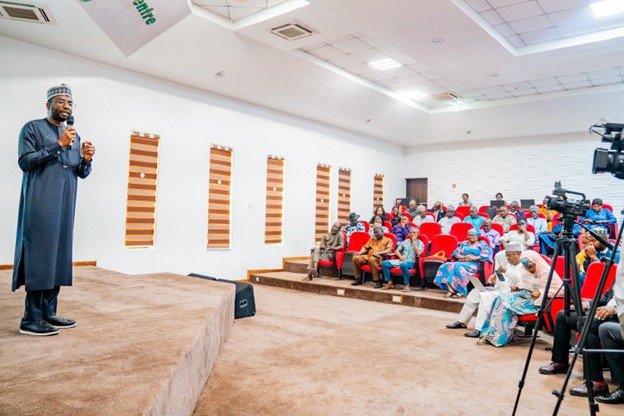The National Information Technology Development Agency (NITDA) has launched a new capacity-building programme aimed at enhancing digital literacy in civil service. Under the leadership of Kashifu Inuwa, this initiative seeks to equip civil servants with essential digital skills necessary for modern governance.
Bridging the Digital Divide
This capacity-building programme is a timely response to the growing need for digital proficiency in public service. As technology continues to evolve, civil servants must adapt to new tools and platforms that facilitate effective governance. The programme aims to bridge the digital divide by providing structured training sessions focused on various aspects of digital literacy.
The training will cover essential areas such as data management, cybersecurity, and the use of digital communication tools. By equipping civil servants with these skills, NITDA hopes to enhance their efficiency and effectiveness in public administration. Improved digital literacy will enable civil servants to better serve the public and streamline processes within government agencies.
Kashifu Inuwa emphasized that this initiative is not just about technology; it is about empowering civil servants to leverage digital tools for improved service delivery. With a well-trained workforce, the government can enhance its responsiveness to citizens’ needs and foster transparency in operations.
Building a Future-Ready Workforce
The launch of this programme aligns with the Nigerian government’s commitment to digital transformation. By investing in the skills of civil servants, NITDA aims to create a future-ready workforce capable of navigating the complexities of modern governance. This aligns with broader national goals of improving public service efficiency through technology.
Additionally, the capacity-building programme will foster a culture of continuous learning within the civil service. As technology changes rapidly, ongoing training will be essential to keep civil servants updated on the latest trends and tools. This proactive approach will ensure that the public service remains competitive and responsive.
Moreover, the programme is expected to have a positive ripple effect across various sectors. As civil servants become more digitally literate, they can better support initiatives that promote innovation and technology adoption in other areas of governance. This will ultimately contribute to Nigeria’s overall development and economic growth.
In conclusion, NITDA’s launch of the capacity-building programme for digital literacy in civil service marks a significant step toward modernizing public administration in Nigeria. Under Kashifu Inuwa’s leadership, this initiative aims to empower civil servants with the skills needed to thrive in a digital age. By bridging the digital divide and fostering a culture of continuous learning, the programme promises to enhance service delivery and improve governance across the nation.




